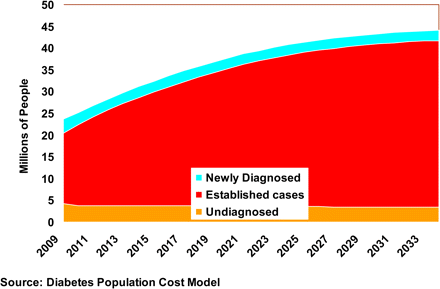Study Links Maternal Gluten Intake to Type 1 Diabetes in Children

Those of you in my practice may have heard how zonulin, an enzyme released by the ingestion of gluten (among others), causes leaky gut syndrome. Leaky gut syndrome is being identified as the keystone to all autoimmune diseases including allergies, diabetes, Alzheimers and thyroid issues.
When your gut is leaky then large food particles, bacteria, viruses, and parasites pass through the intestinal wall from the lumen and into “us” proper. About 80% of our immune system lies just outside this lumen and in “us” proper. When items like large food particles, bacteria, viruses, and parasites slide in through the zonulin-facilitated open door then the immune system is activated. These items are not supposed to be there.
Now imagine this open door inflammatory process happening several times a day and every day because of what we eat. If your genetics are there for an autoimmune disease then dye is being cast in the water.
The British Medical Journal (1) published in September 2018 that maternal gluten intake during pregnancy may be strongly associated with the subsequent risk of offspring developing type 1 diabetes. The study suggests that pregnant women who eat 20g or more of gluten a day are twice as likely to have a child with type 1 diabetes than women who eat less than 7g of gluten a day. A single piece of sliced bread has 5 grams of gluten. This is no small study either. Results include data from more than 67,500 pregnant Danish women. Diabetes developed in their children within 15.7 years after birth. It is important to realize that events of the past can have effects way into the future.
The New England Journal of Medicine (2) published in 2017 that diabetes is on the rise in children. From 2002 to 2012, the incidence, or the rate of newly diagnosed cases of type 1 diabetes in youth increased by about 1.8 percent each year. During the same period, the rate of newly diagnosed cases of type 2 diabetes increased even more quickly, at 4.8 percent. According to Population Health Management (3), the prevalence of diabetes (type 2 diabetes and type 1 diabetes) will increase by 54% to more than 54.9 million Americans between 2015 and 2030.

(http://care.diabetesjournals.org/content/32/12/2225)

(https://www.ncbi.nlm.nih.gov/pmc/articles/PMC5278808/)
And know that if you ate gluten during your pregnancy or eat gluten now, your body can repair itself. Even though the dye was cast or is continuing to be, healthy dietary changes are possible and autoimmune disease can be avoided. Use the 5 R’s: remove, replace, repair, reinoculate and rebalance.
This study reinforces why I recommend a gluten-free or low-FODMAP diet for some patients (the remove part of the 5 R’s.) I say “some patients” because a lucky third of us do not make zonulin. (Additional items may need to be removed as well like parasites, too much bacteria or the wrong bacteria, and yeast.)
Replace with non-gluten grains and/or low-FODMAP foods.
Repair with zinc, aloe vera, glutathione, fish oil, turmeric, and vitamin D3 to name a few.
Reinoculate with probiotics.
Rebalance your life through exercise, hydration, sleep, community and meditation or prayer. Basically use all the small decisions you make daily on how you live your life to influence how your genetics are expressed (epigenetics.)

The take home is we are like dominos and what happens in a family stays in a family. The good news is if you are a standing domino you can change the direction of the fall before it happens by following the 5 R’s.
1 - Association between maternal gluten intake and type 1 diabetes in offspring: national prospective cohort study in Denmark - BMJ 2018; 362 doi: https://doi.org/10.1136/bmj.k3547 (Published 19 September 2018) - https://www.bmj.com/content/362/bmj.k3547.
2 - Rates of new diagnosed cases of type 1 and type 2 diabetes on the rise among children, teens. https://www.nih.gov/news-events/news-releases/rates-new-diagnosed-cases-type-1-type-2-diabetes-rise-among-children-teens.
3 - Diabetes 2030: Insights from Yesterday, Today, and Future Trends. https://www.ncbi.nlm.nih.gov/pmc/articles/PMC5278808/.


Leave a comment